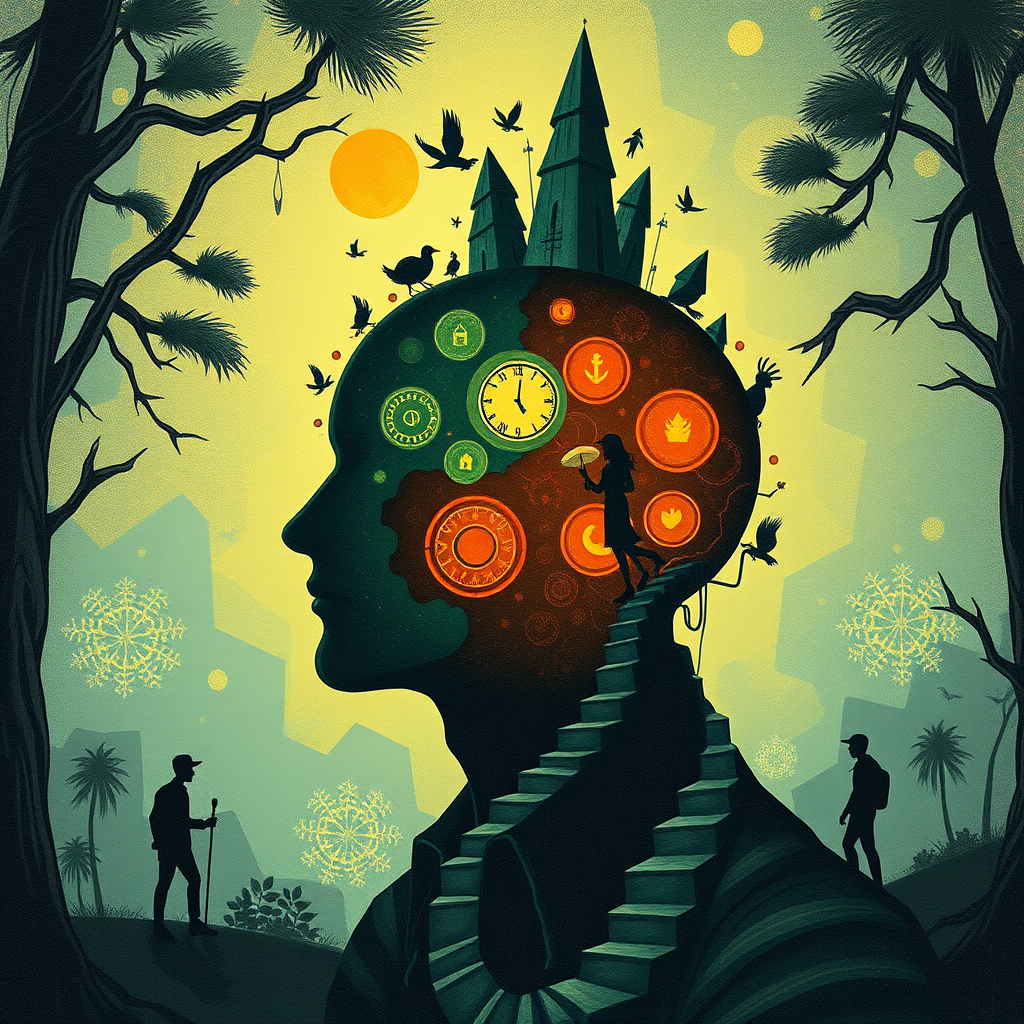Venture and Discover for the Mystical Psychology of Exploration
The Psychology of Exploration
Why We Love to Venture and Discover
Human curiosity has shaped history, fueling scientific breakthroughs, world exploration, and personal growth. From discovering new lands to unraveling the mysteries of the universe, our desire to venture beyond the familiar is deeply ingrained in psychology. But why do we seek the unknown? What drives us to explore, take risks, and push boundaries?
The Evolutionary Roots of Exploration
Survival and Adaptation
Exploration is closely tied to our evolutionary history. Early humans relied on discovery to find food, secure shelter, and adapt to changing environments. Those who ventured beyond their comfort zones gained access to new resources, increasing their chances of survival. This instinct remains deeply embedded in our psychology, encouraging us to seek new experiences and problem-solve.
Curiosity and Cognitive Growth
Psychologists argue that curiosity is a fundamental cognitive process that drives learning. Studies show that exploring new information triggers activity in the brain’s reward system, releasing dopamine—the neurotransmitter associated with pleasure. This means that when we discover something new, our brains reward us, reinforcing the cycle of curiosity and exploration.

Psychological Theories Behind Human Exploration
The Need for Novelty and Stimulation
The human brain craves novelty. Psychologists explain that novelty-seeking behavior is linked to increased dopamine levels, creating feelings of excitement and anticipation. Whether traveling to new places, learning new skills, or engaging in creative problem-solving, experiencing something different stimulates our minds and enhances cognitive flexibility.
Self-Determination and the Drive for Autonomy
The theory of self-determination states that humans have three core psychological needs autonomy, competence, and relatedness. Exploration satisfies autonomy by allowing individuals to make independent decisions and forge their own paths. Whether embarking on a personal journey or scientific research, the freedom to explore strengthens self-identity and personal fulfillment.
The Emotional Benefits of Discovery
Exploration as a Path to Happiness
Engaging in discovery activities—whether traveling, researching, or experimenting—can significantly boost happiness. Studies indicate that exploring new places and ideas activates the brain’s positive emotional circuits, reducing stress and increasing overall well-being. New experiences create lasting positive memories, reinforcing the psychological benefits of adventure.
The Role of Exploration in Personal Growth
Venturing beyond comfort zones encourages self-discovery and resilience. Challenging experiences—such as navigating unfamiliar environments or solving complex problems—develop critical thinking, confidence, and adaptability. Growth-oriented exploration leads to self-improvement, teaching individuals valuable lessons about perseverance and learning from failures.

The Social and Cultural Aspects of Discovery
Human Connection Through Exploration
While discovery is often viewed as an individual pursuit, it also fosters social bonds. Traveling, experiencing different cultures, and exploring new perspectives strengthen empathy and global awareness. Shared exploration experiences create meaningful connections with others, highlighting the social value of discovery.
How Cultural Influences Shape Curiosity
Different societies encourage exploration in unique ways. Some cultures emphasize innovation and scientific discovery, while others celebrate spiritual or artistic exploration. Psychology shows that cultural background significantly influences how individuals approach learning, travel, and risk-taking behavior. Understanding these cultural differences enriches the collective experience of discovery.
Expanding Our Understanding of Human Exploration
The Role of Uncertainty in Motivation
Uncertainty is often seen as a challenge, but psychology suggests that it can be a powerful motivator. When faced with the unknown, the brain engages problem-solving mechanisms, increasing focus and excitement. This drive to reduce uncertainty is a key factor behind exploration, pushing individuals to seek answers, uncover mysteries, and test their limits.
How Dopamine Fuels the Exploration Process
Neuroscience reveals that dopamine—the neurotransmitter associated with pleasure—plays a crucial role in curiosity and discovery. When individuals encounter something novel, dopamine levels rise, reinforcing exploratory behavior. This is why activities such as traveling, researching, and learning new skills generate feelings of excitement and satisfaction.
The Psychological Thrill of Adventure and Risk-Taking
Adventure-seekers often experience a psychological high from taking risks and venturing into the unknown. This thrill-seeking behavior is linked to the brain’s reward system, which reinforces courage and excitement. Whether through extreme sports, scientific breakthroughs, or entrepreneurship, calculated risk-taking fuels innovation and personal growth.

The Influence of Technology on Human Curiosity
Advancements in technology have transformed the way humans explore. The internet, artificial intelligence, and space exploration have expanded the boundaries of discovery, providing new ways to engage with knowledge. As psychology adapts to technological change, curiosity continues to evolve, creating opportunities for individuals to explore beyond physical limitations.
Exploration as a Path to Self-Actualization
Psychologist Abraham Maslow’s hierarchy of needs highlights self-actualization—the highest level of personal fulfillment. Exploration plays a major role in reaching self-actualization, allowing individuals to pursue passions, deepen knowledge, and maximize potential. By embracing curiosity and adventure, people can achieve their fullest expression of identity and purpose.
Conclusion
The psychology of exploration is deeply rooted in evolution, cognitive processes, and emotional fulfillment. Our innate curiosity drives us to seek knowledge, challenge limits, and embrace the unknown. Whether through travel, scientific inquiry, or personal growth, venturing beyond familiar territory strengthens the mind and enriches human experience. By understanding the psychological principles behind discovery, we can fully appreciate our natural instinct to explore.
Join the Discussion
What fuels your sense of discovery? Have you ever explored something that changed your perspective on life?








I needed to post you this bit of observation just to give thanks yet again regarding the lovely pointers you’ve documented on this page. This is really wonderfully open-handed of people like you to deliver extensively what most of us would’ve distributed for an e book to get some cash on their own, precisely considering the fact that you might have tried it in case you decided. Those techniques likewise served to provide a fantastic way to be certain that other individuals have similar dream similar to my very own to see very much more when it comes to this issue. I know there are millions of more pleasurable periods in the future for those who look over your blog.
Whats up this is kinda of off topic but I was wondering if blogs use WYSIWYG editors or if you have to manually code with HTML. I’m starting a blog soon but have no coding expertise so I wanted to get advice from someone with experience. Any help would be greatly appreciated!